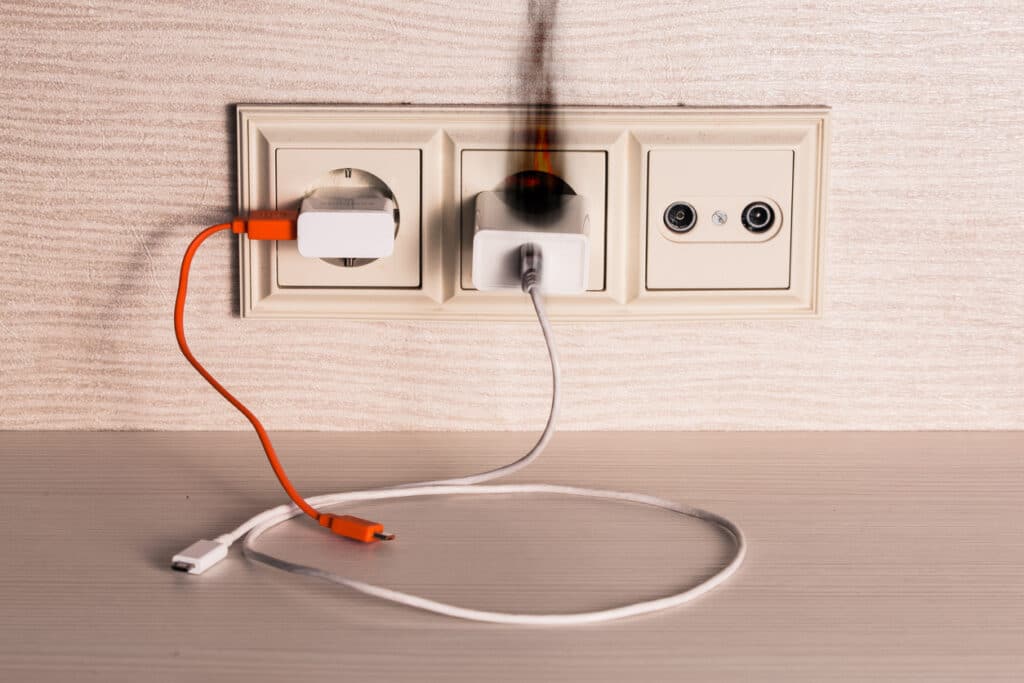Overloading circuits can create a serious safety hazard for your family and home. You risk damaging appliances and expensive electronics while also increasing the chances of your house catching fire.
It’s essential to know the signs of an overloaded circuit so that you can take action to keep your family and home safe. Common symptoms can help you spot and prevent overloaded circuits from becoming a more significant problem.
Flickering Lights and Strange Noises
You might have an overloaded circuit if your lights flicker on and off. Your lights may also appear to be brighter, but then they become dim. Your lights might only dim or flicker when you plug in or turn on an additional device, such as a toaster oven.
Another sign is unusual buzzing sounds that come either from an outlet that has something plugged in or an electrical device or appliance itself.
Tripped Switches and Blown Fuses
When circuits over load, they have built-in safety features to stop the flow of electricity and prevent overheating, burning, and fires.
If a circuit becomes overloaded, you might notice that your Ground Fault Circuit Interruptor (GFCI) outlet needs resetting. These outlets are often in a garage or bathroom with small buttons that pop out if the circuit trips. An overloaded circuit will trip this outlet often, requiring you to press the reset switch to regain power.
You might also have to make frequent trips to your home’s circuit breaker panel, which is housed within a box, often in the garage or outside on the side of your house. The panel has a switch for each electrical circuit, and it turns off or trips if the circuit becomes overloaded. You’ll need to flip the switch back on to regain power.
Older homes often have fuses instead of circuit breaker switches. If you keep dealing with blown fuses, an electrical circuit is likely overloaded.
Burning Smells or Sparks
Have you ever smelled a burning odor from an outlet or appliance? That smell is another possible sign of an electrical overload. Keep your eyes open for any sparks coming from outlets as well. If an outlet feels warm to the touch or you notice that it has become discolored, the most likely issue is an overloaded circuit.
Inability to Use Multiple Appliances Simultaneously
Homebuilders from decades past didn’t equip houses with powerful enough electrical circuits to handle the increasing amount of electronic appliances, equipment, and gadgets we use today.
If your home’s circuits are overloading, you’ll likely notice that you can’t use multiple appliances simultaneously, such as the microwave and toaster, without tripping an electrical switch. Your electronic devices may charge slower because there’s insufficient electrical power to support them.
Your appliances may overheat, or you may not even be able to turn on high-energy appliances such as an air conditioner, electric heater, or oven.
Call for Professional Help
If you suspect that your home’s circuits are overloading, it’s crucial to take action immediately to prevent damage to your appliances and electronics and fire hazards. If you’re experiencing an of the above signs, don’t wait until it’s too late! Reach out to a professional electrician to inspect your house’s electrical system and recommend repairs or upgrades. Schedule an appointment today with the professional electricians at Circuit Doctors Electric Services in Waldorf, MD.


